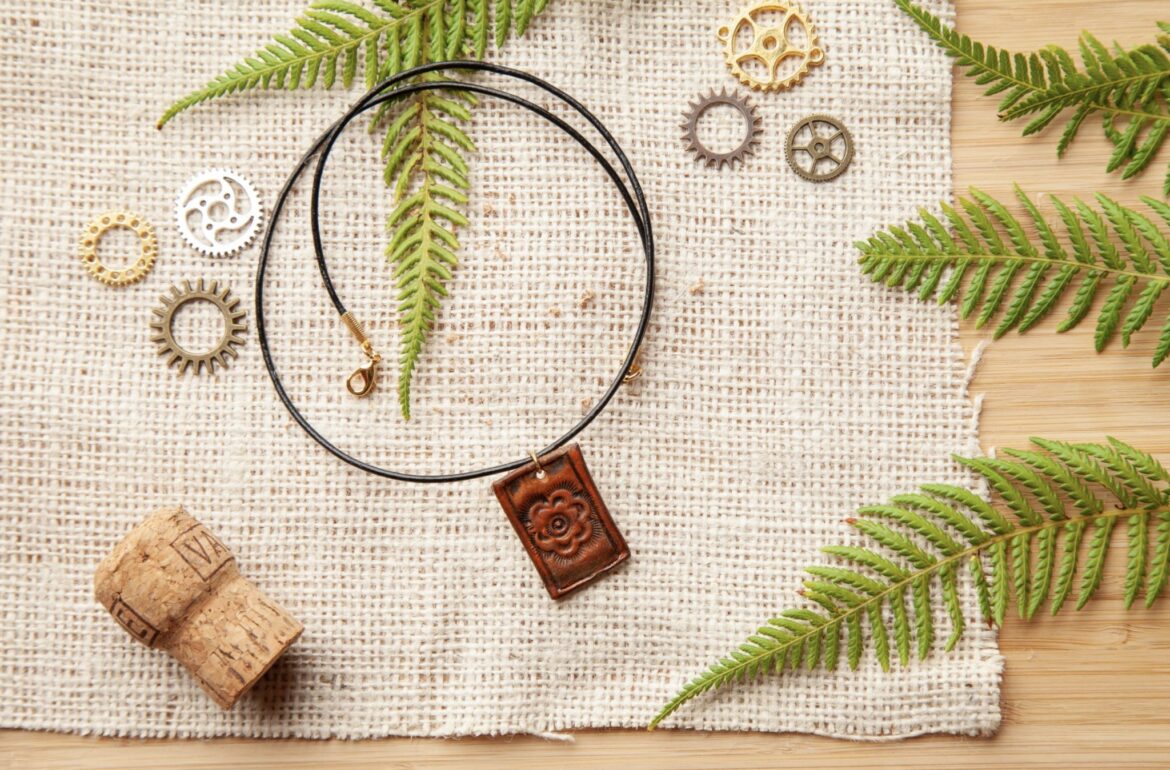
Forecast: Leather Weather
There’s a reason why leather has endured in fashion for decades. Any fall/winter wardrobe checklist is certain to feature a leather or suede jacket, skirt, Boho fringe bag (my personal favorite), and this season, leather jeggings (I’m on the fence – have you tried them?). It must be because this sumptuous fabric can be buttery, coarse, sophisticated or rugged! I know I feel instantly pulled together when I add an element of leather to my outfit and hey, it gets me (temporarily) out of yoga clothes.
We’re always striving to keep our artistic offerings fresh and inspirational. Last year, we incorporated Leatherworking & Metalsmithing to our enrichment classes and camps with much success! We want to eliminate any feelings of intimidation about working with these materials – it’s so much fun. Our young students are already blowing us away with their prowess. We are planning on adding leather crafting to our Parks & Rec adult classes in the near future, so stay tuned!
We have a great way to incorporate a little more leather into your life AND get your “feet wet” in working with this textile…our Leather Flower Pendant! This adorable piece features a stamped flower on a rectangular piece of leather. If you aren’t quite ready for leather pants, this is the way to add some cool into your ensemble! The pendant is very versatile – use it on a necklace, bracelet, luggage tag, and to adorn a journal or bookmark. You can also make two and turn them into earrings (did I just blow your mind)?!
We hope you enjoy picking up this new skill! If you get hooked, and we’re pretty sure you will, stay tuned for news on our 2020 Bead Night events and adult classes (offered through various Parks & Rec locations) that feature leather and metal projects!
– Vegetable tan leather
– Gel antique
– Stitching groover
– Edge beveler
– Edge Slicker
– Rotary puncher
– Leather stamps (ideally with a flower pattern)
– Mallet
– Rubber mat
– Clean sponge
– Water
– Chain nose pliers
– Jumpring
– Necklace cord with clasps
Step 1: Cut a piece of vegetable tan leather (VTL) in any shape you want your charm to be – we went with a classic, rectangle design, so we could create multiple pieces with the least amount of scrap materials. Straight lines are also easier to work with when you are first starting out with leatherworking.
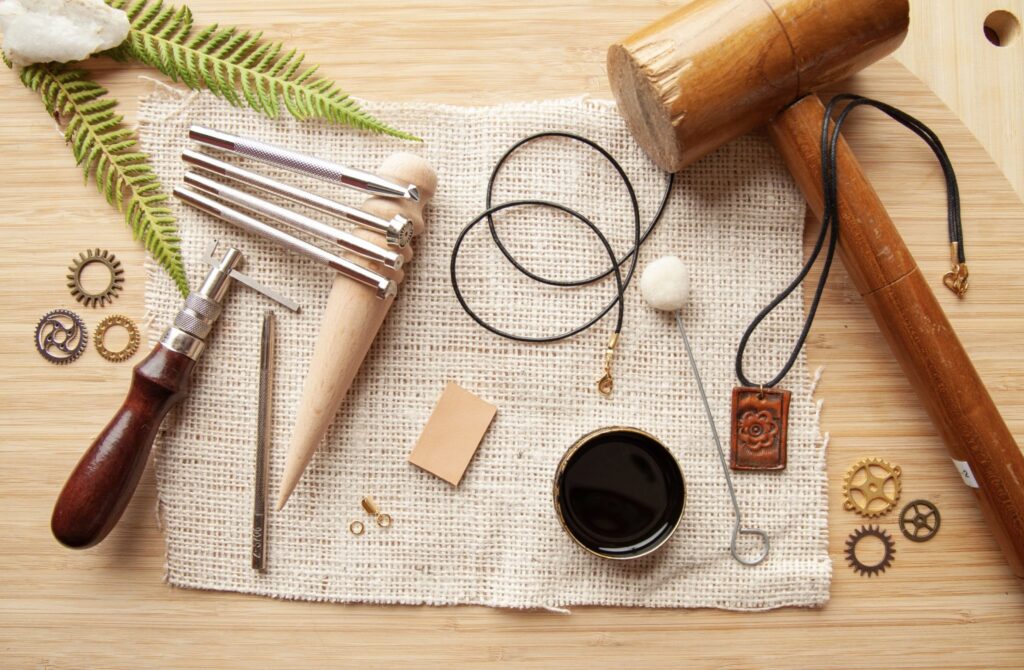
Step 2: Using your stitching groover, create a border for your design. Set your groover to the desired size, and using one strong and steady motion, drag the blade across the surface of your leather to carve out a groove. Do this on all four sides.
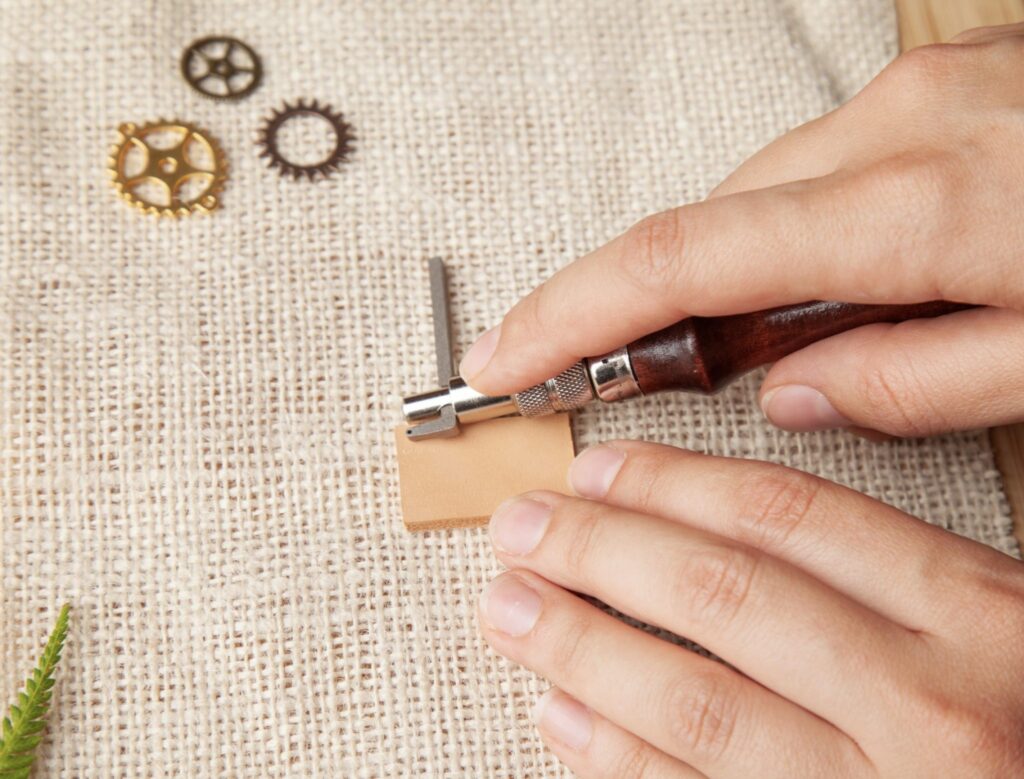
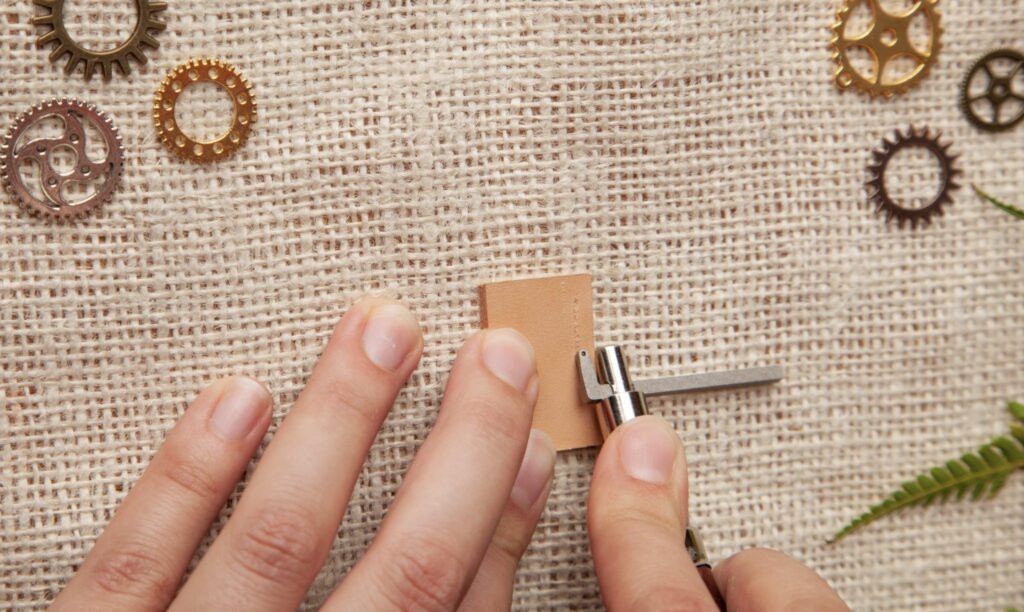
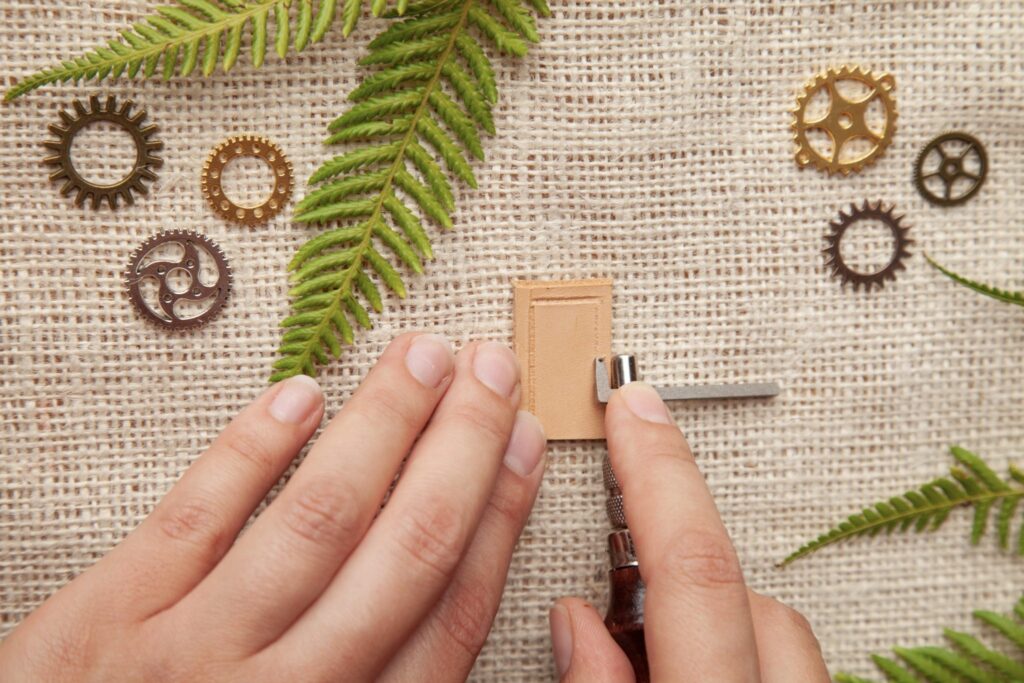
Step 3: Grab your edge beveler and carve away the sharp sides of your leather. Do this on all four sides of your pendant, both on the front and the back.
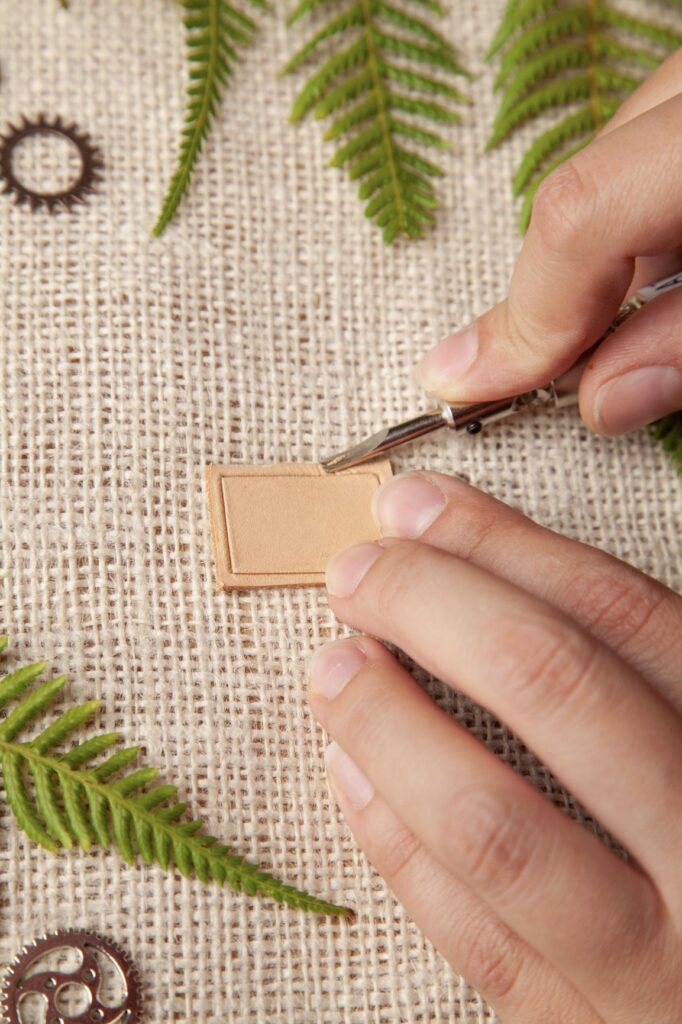
Step 4: Using a clean sponge, dampen the sides of your pendant. The water seeps into the leather, softening it, allowing you to use your leatherworking tools – note that these tools only work on vegetable tan leather! Chemically tanned leather has already reached its “final form” so you can’t carve it or stamp on it anymore.
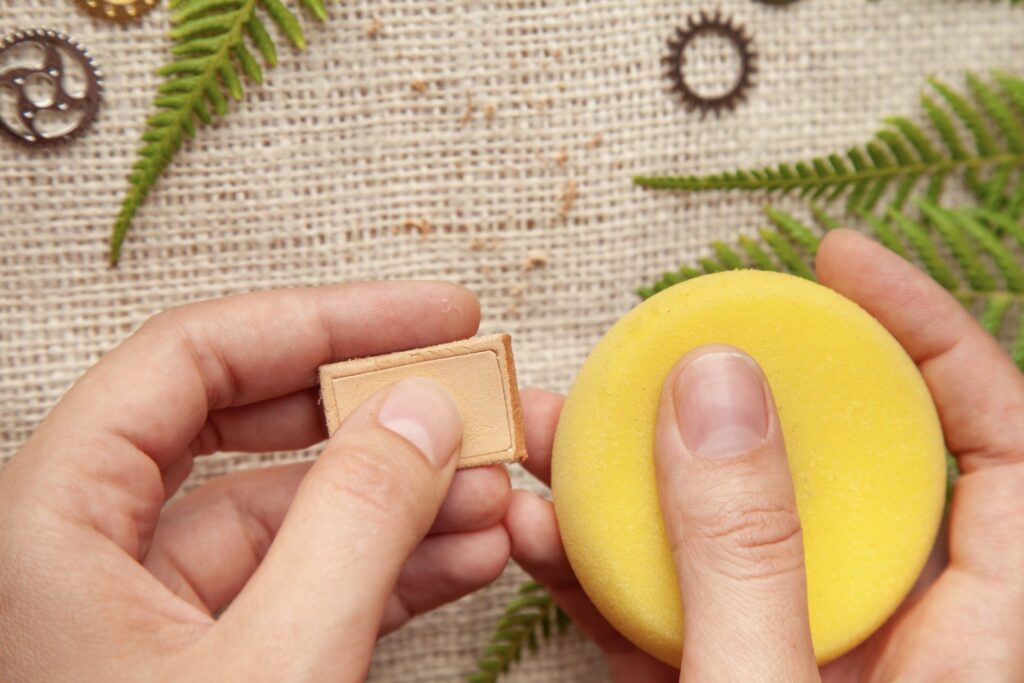
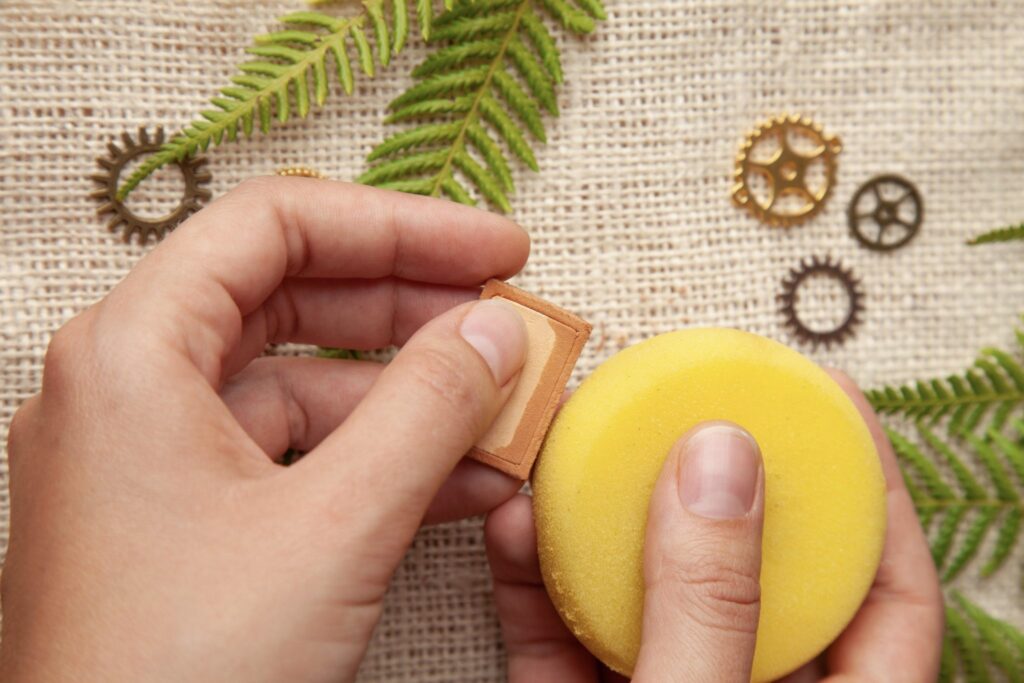
Step 5: Once the edges of your charm are damp, grab your edge slicker. Match the groove with the thickness of your piece of leather and with a repeated rubbing motion, slick the edges of your charm. This should give a nice, smooth, rounded edge on all sides.
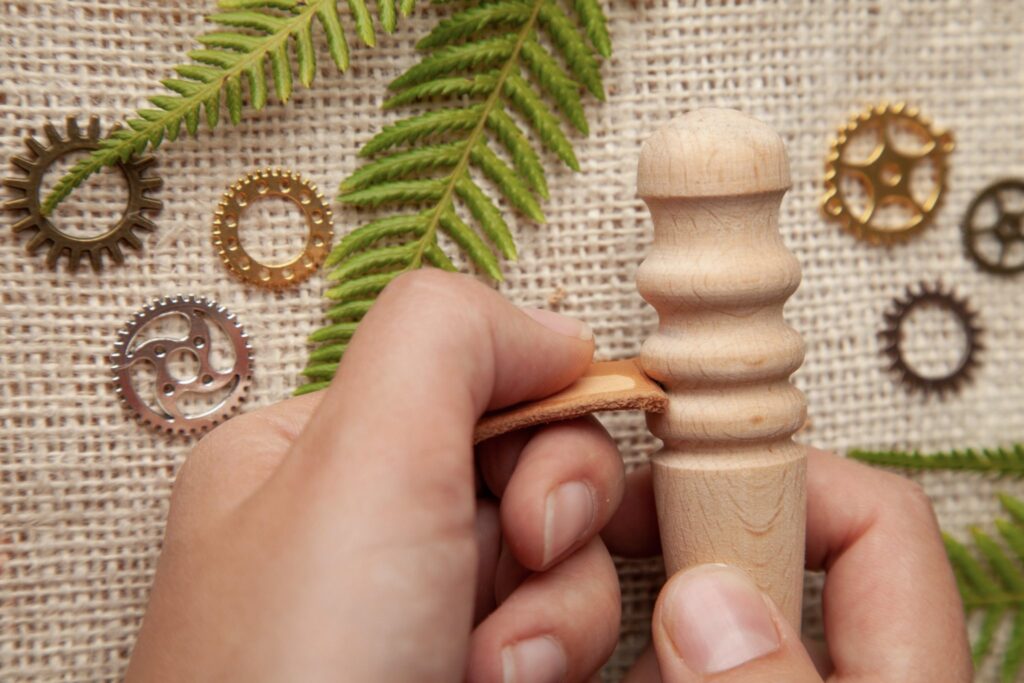
Step 6: Think of the design you want to stamp on your charm! We used several different leather stamps to create a textured look.
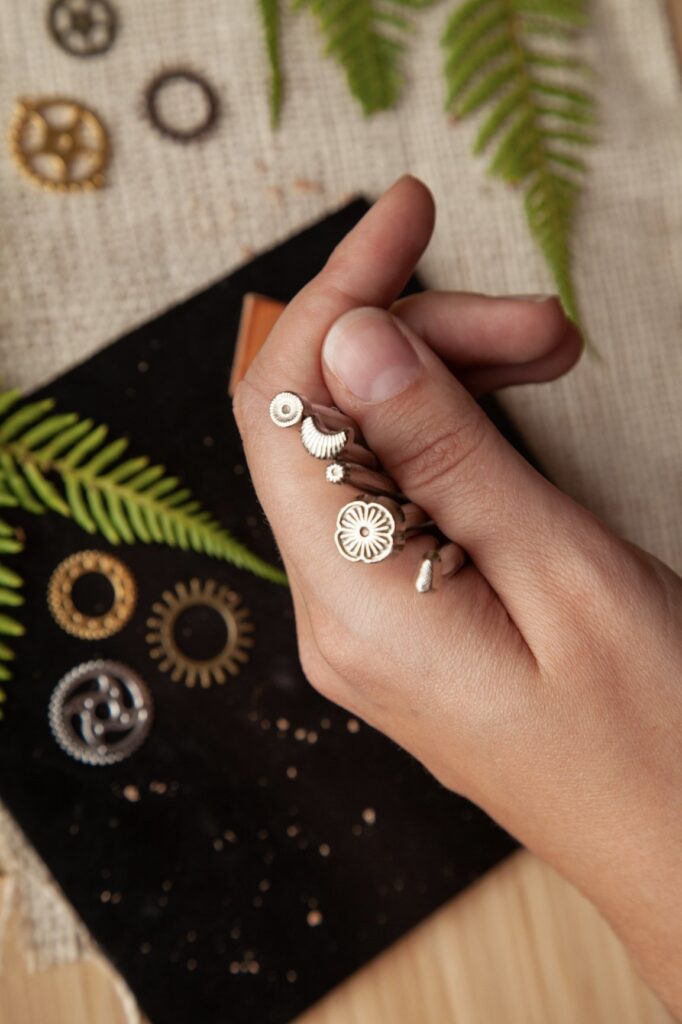
Step 7: Using your sponge again, dampen the entire surface of your charm.
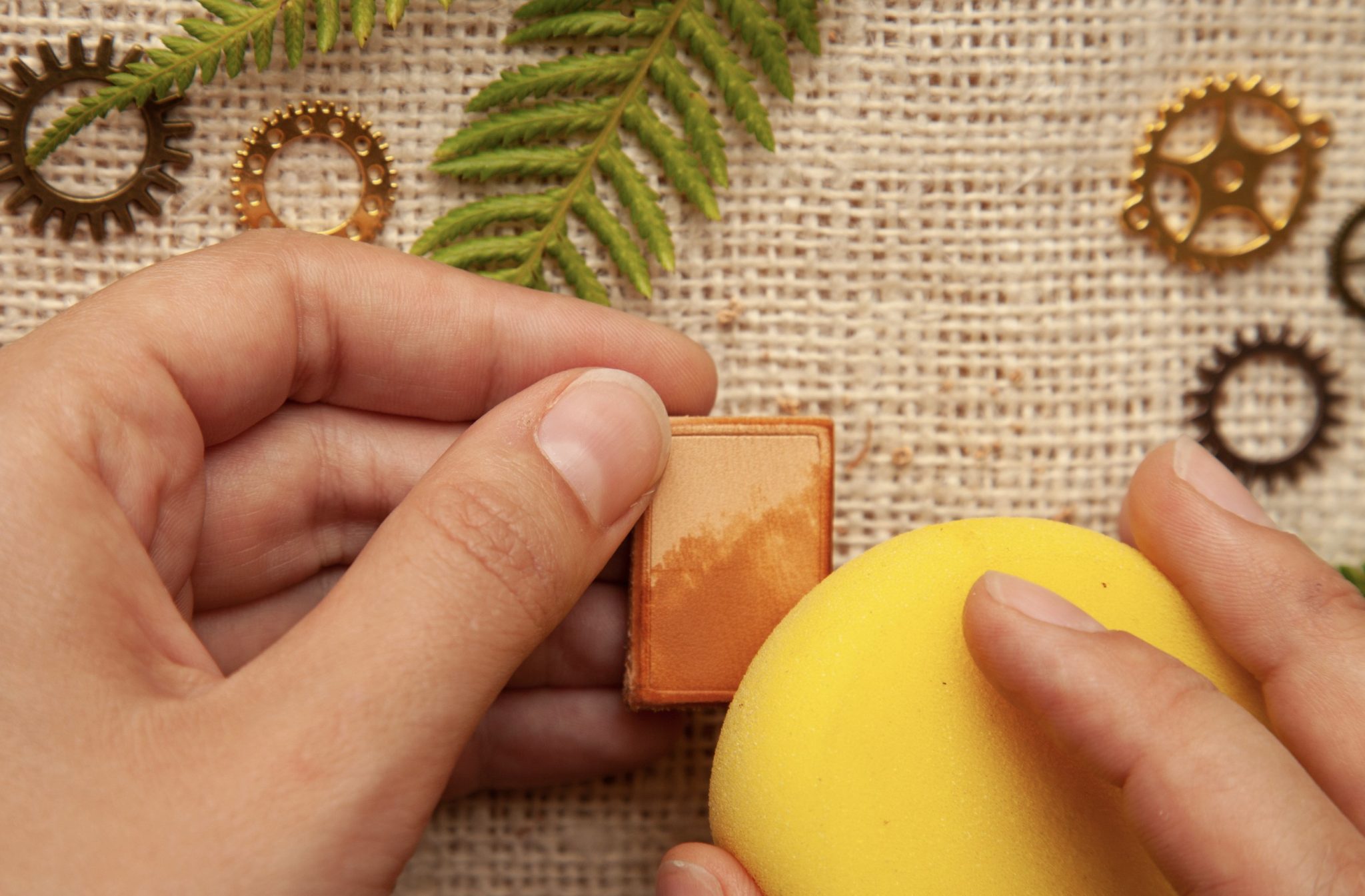
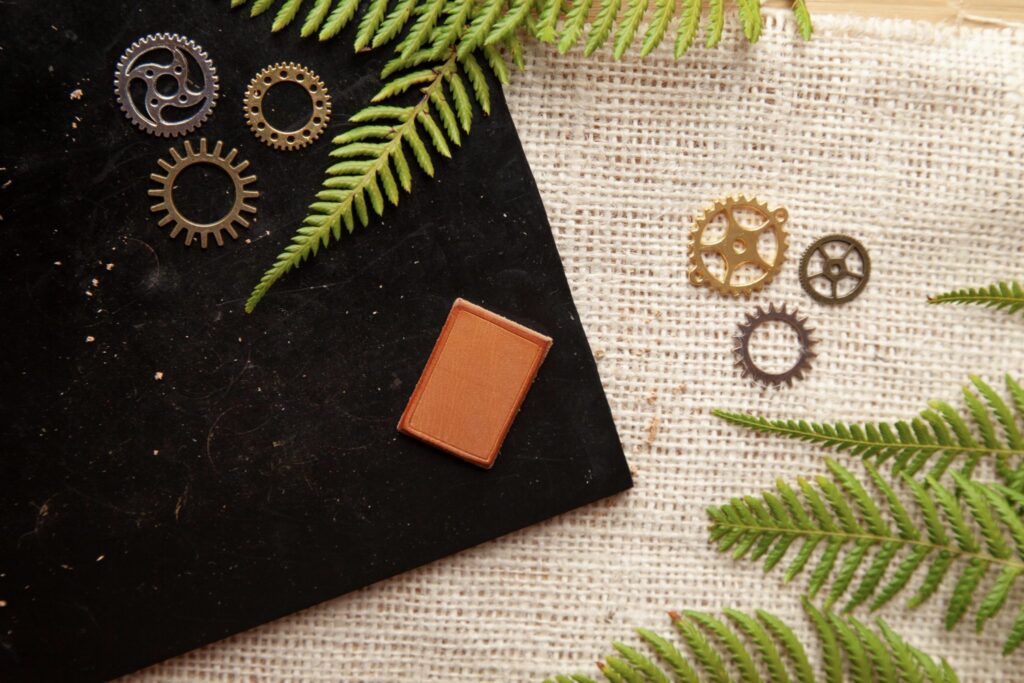
Step 8: When stamping, use a rubber mat to protect the surface your working on. You will need a mallet as well – rubber, plastic or wooden mallets will work perfectly. To stamp your design you will need to align the stamp you’re using perfectly – if you’re using letters or non-symmetrical shapes, double check that they are facing the right way!
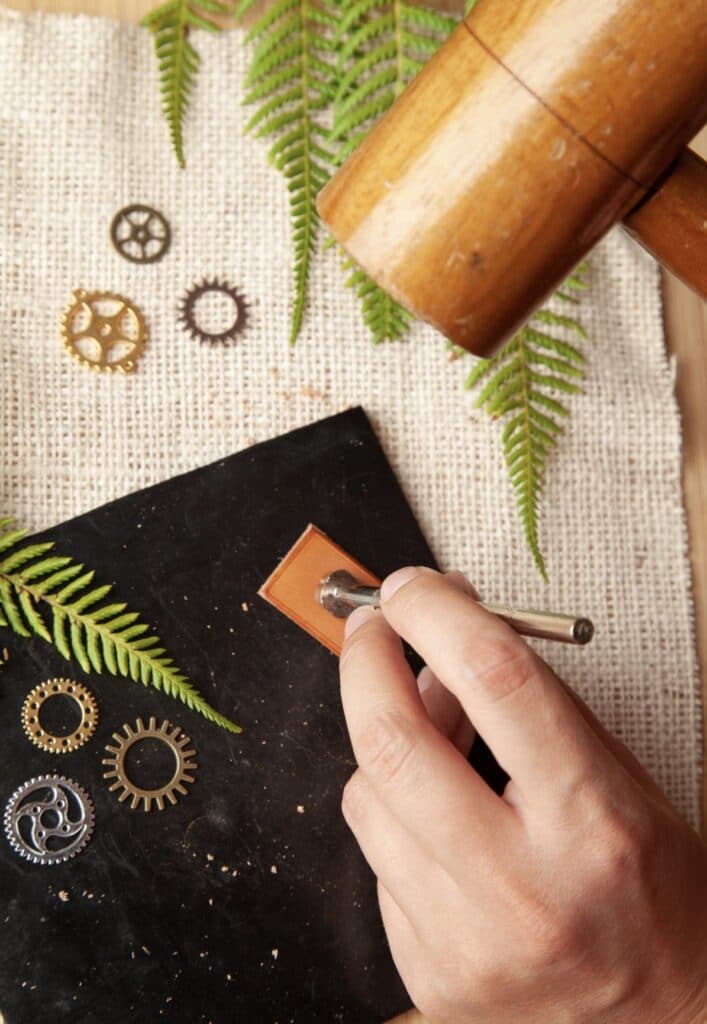
Step 9: With a single, confident, strong hit, stamp in your design. You want to avoid hitting the stamp with the mallet multiple times – this leaves space for your hands to accidentally move, and create a “shadow” image of your design.
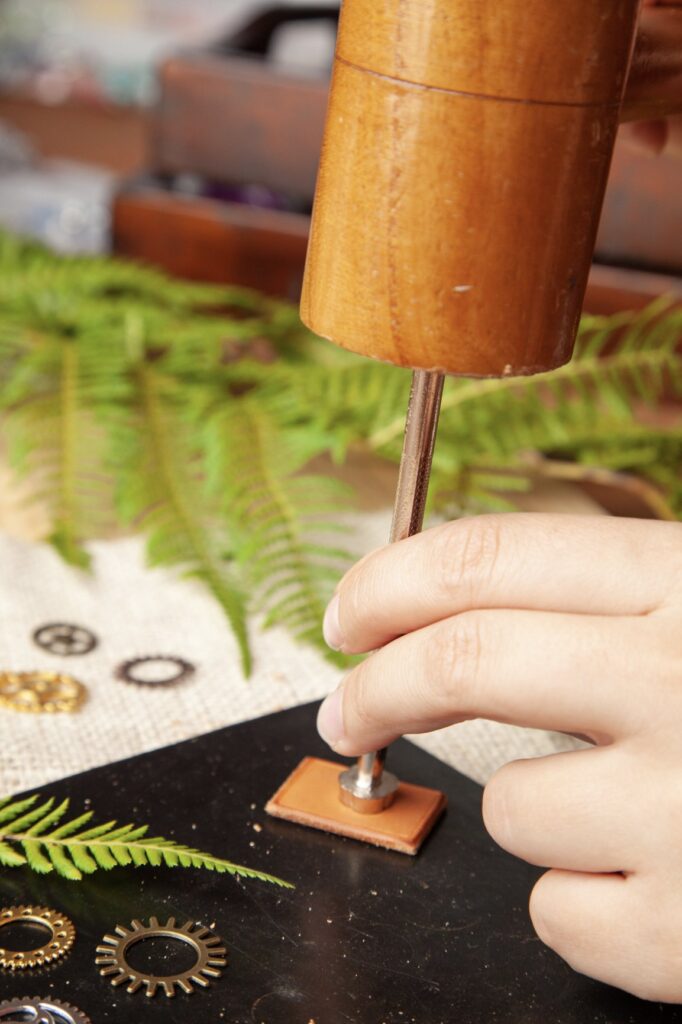
Step 10: We used several different types of stamps to achieve this look. We started off with a floral stamping stamp, then emphasized the center of it with a seeder stamp.
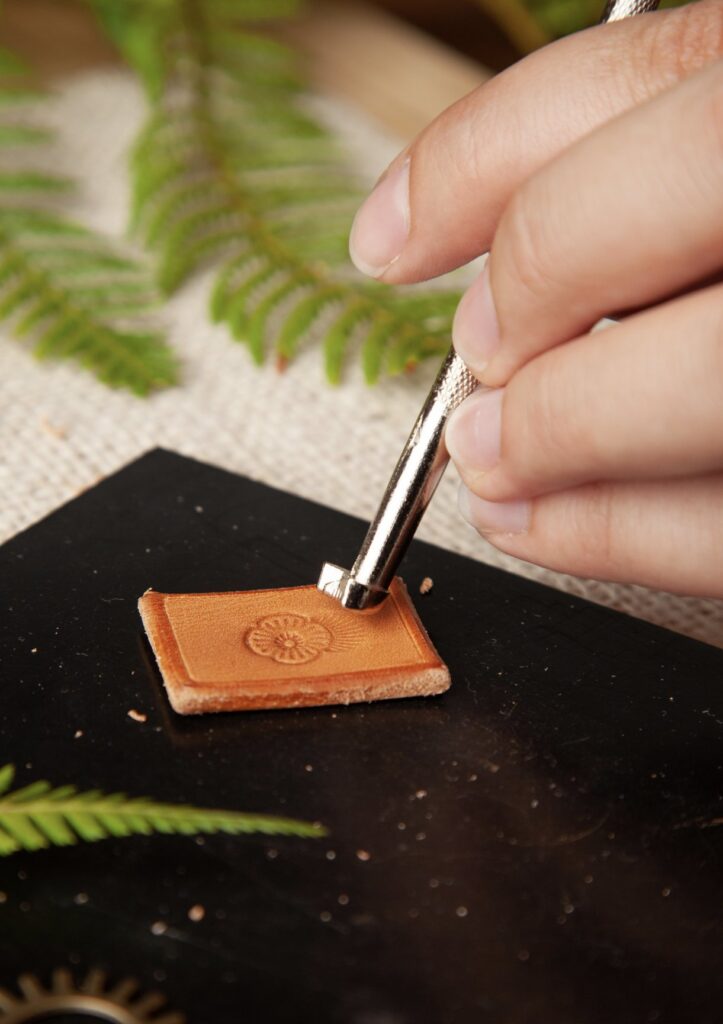
Step 11: We used camouflage tools to stamp around the petals of the central flower design.
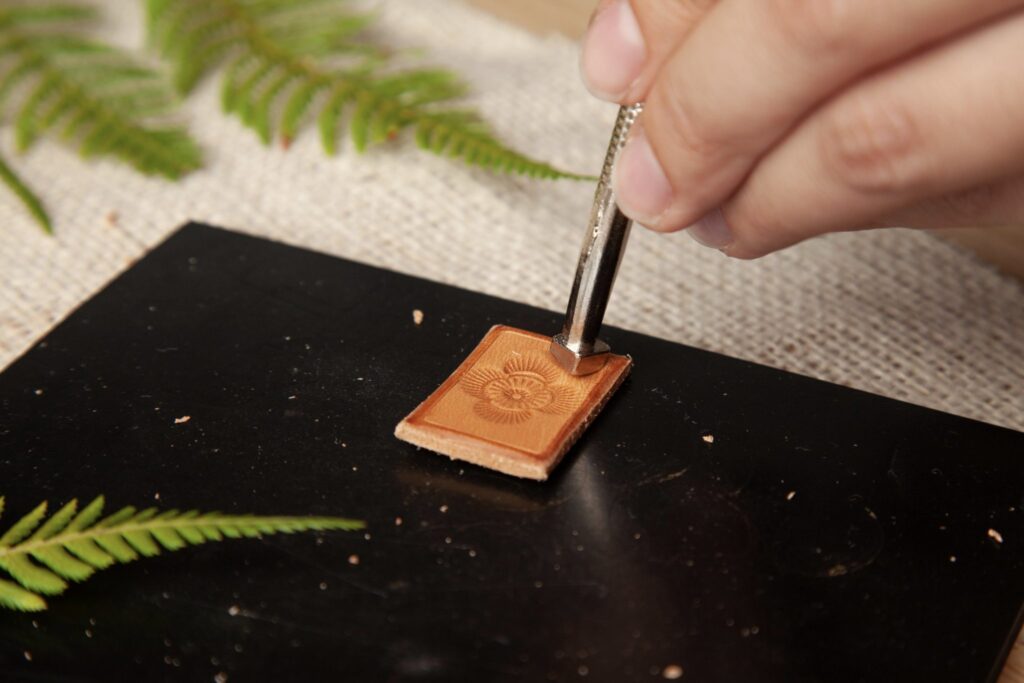
Step 12: For a pendant with more depth we used a smooth beveler stamp to further texturize the leather. You can also use shader stamps in different shapes for this purpose.
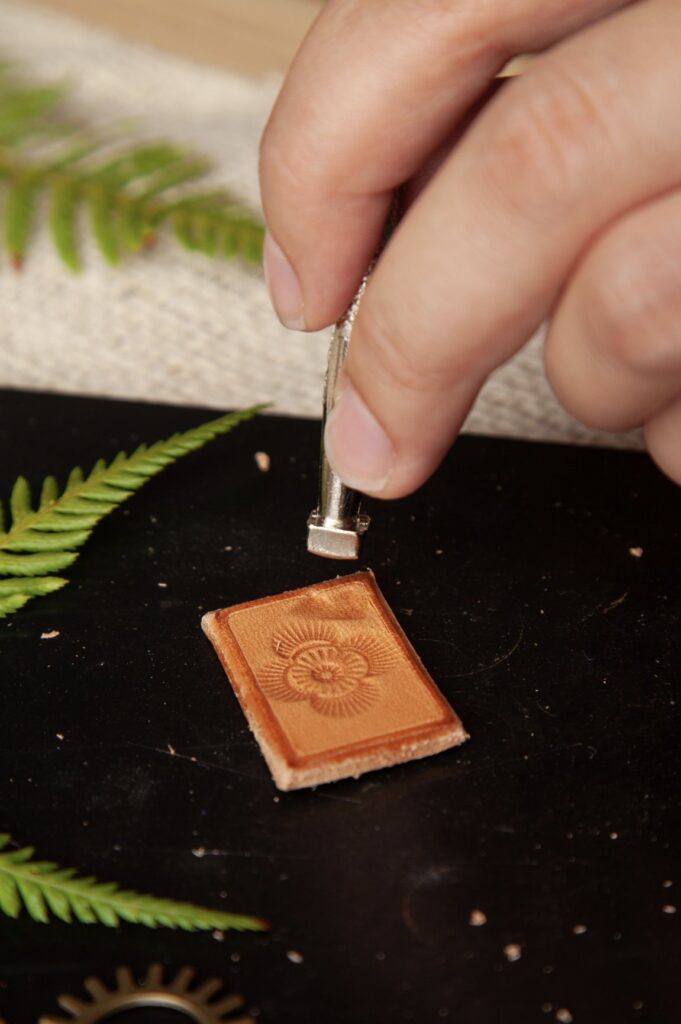
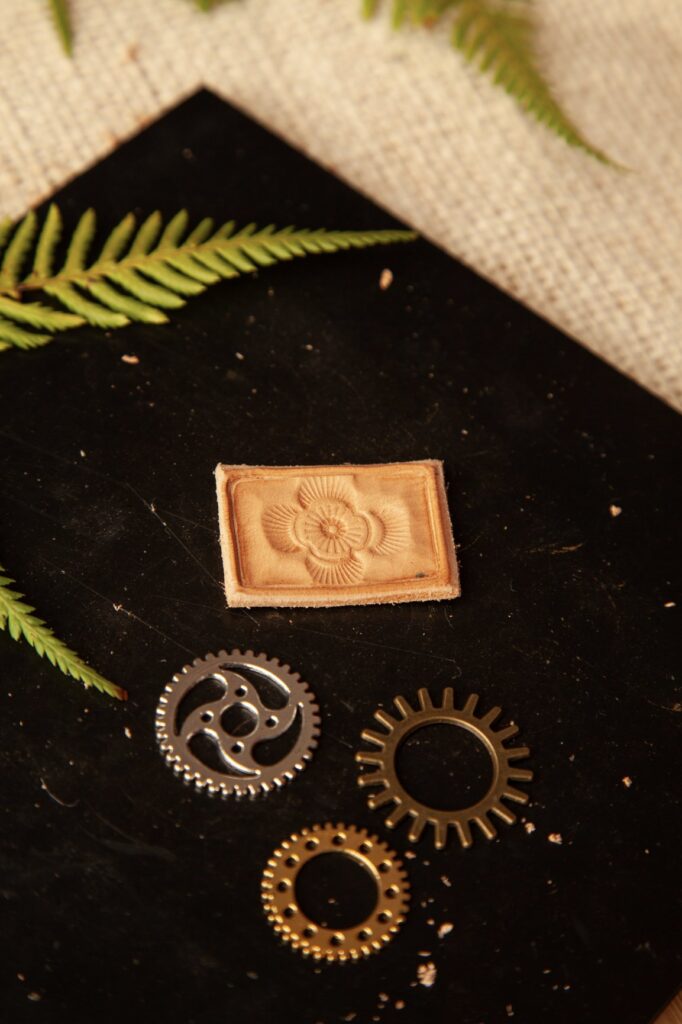
Step 13: Once you’re happy with how your stamped design looks, you can go ahead and punch a hole with your rotary puncher. A small (size 2) hole should fit your jump ring perfectly. Make sure that you punch your hole close enough to the edge of the leather so that the jump ring can fit, but not so close that you accidentally cut into the edge.
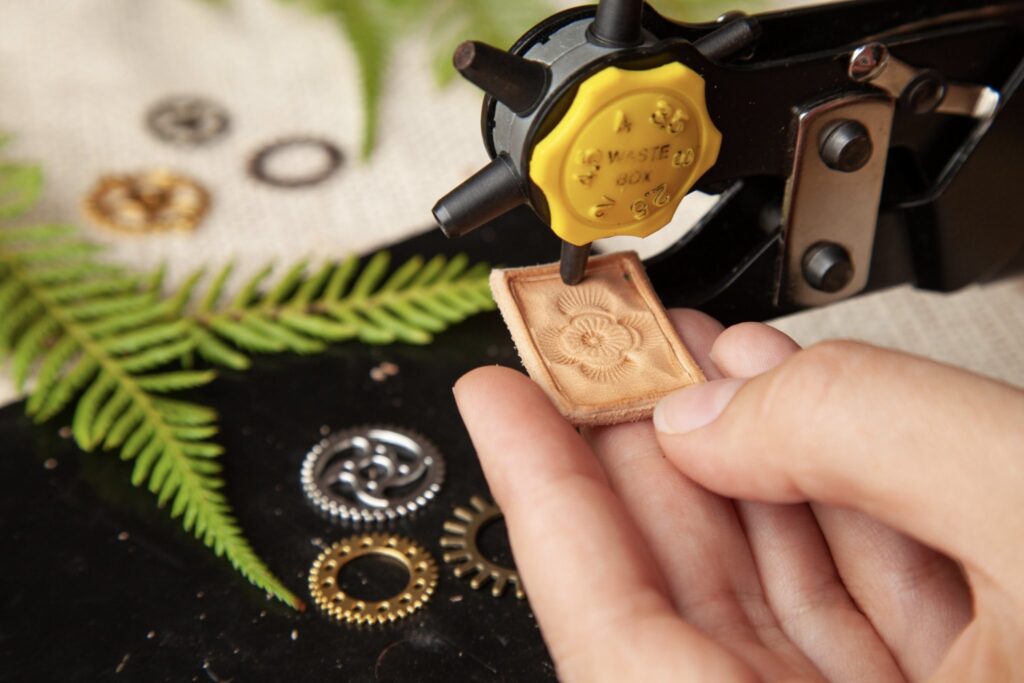
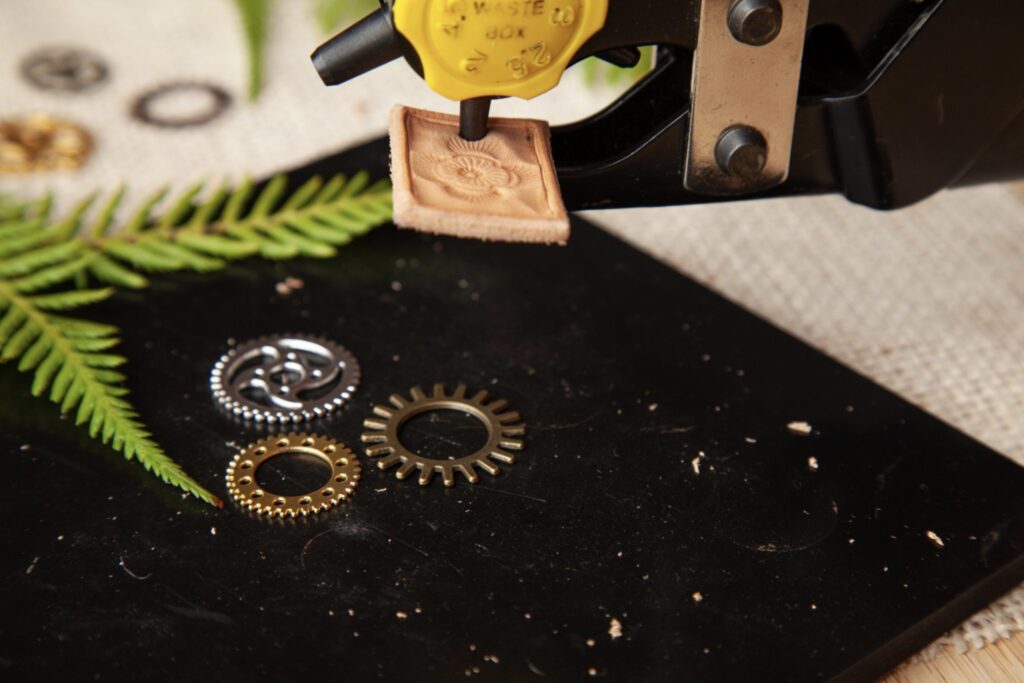
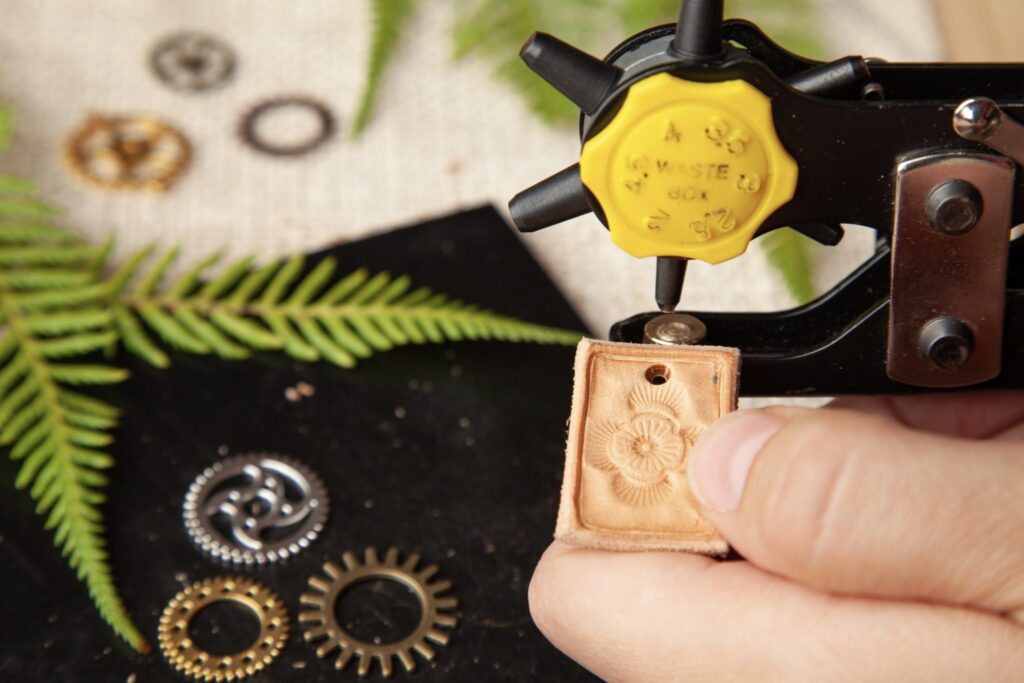
Step 14: Spread gel antique on the entire pendant to have the little nooks and crannies in your design really pop out! Gel antique brings out all the details and natural beauty in leather, so for a project such as this one, we recommend using this fantastic material over regular leather paints and dyes.
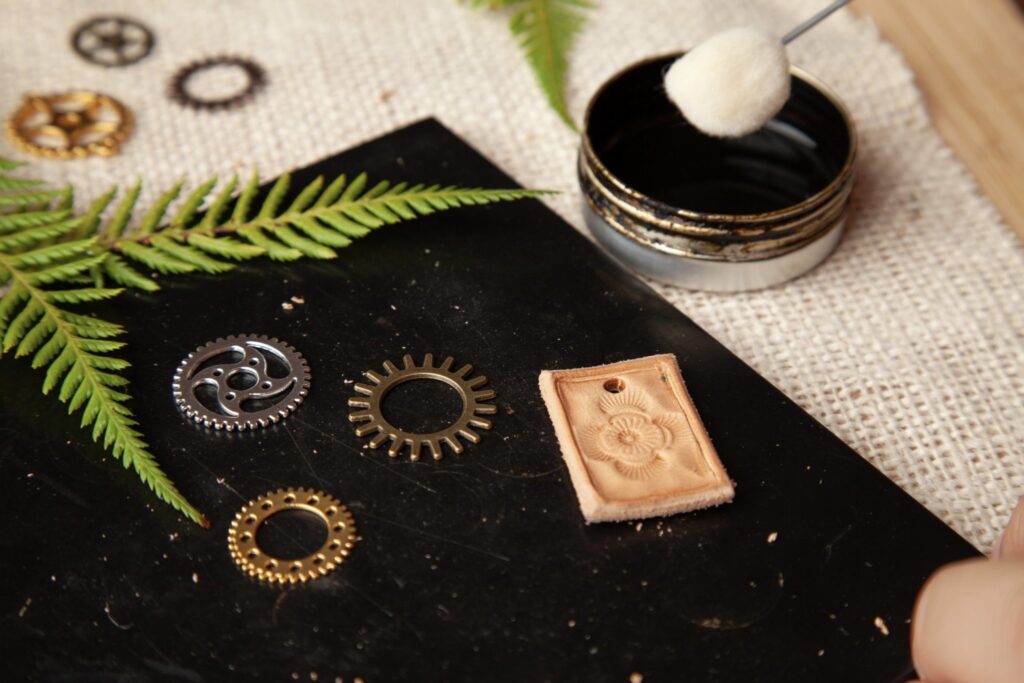
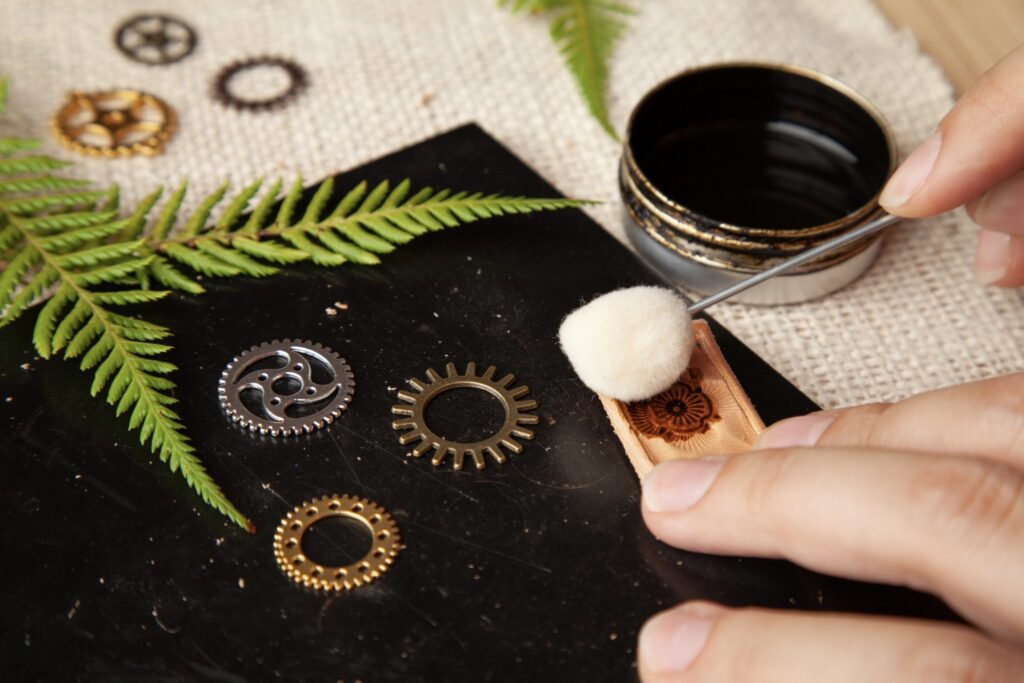
Step 15: Once the gel antique has dried – which should only take a minute or two – grab your jump ring, and using chain nose pliers, attach it onto your leather cord.
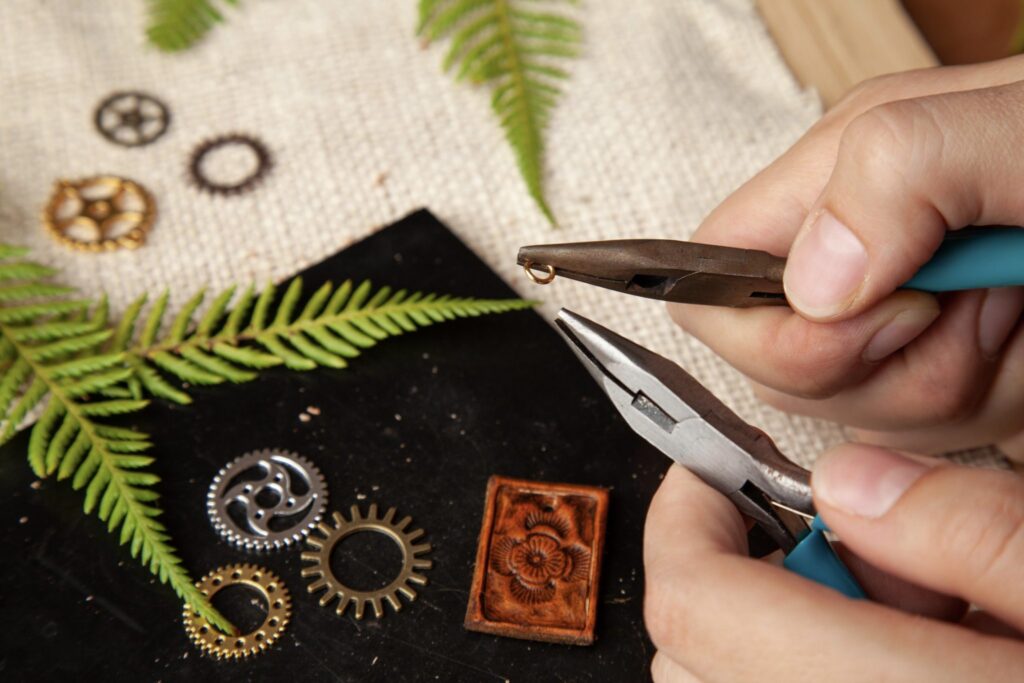
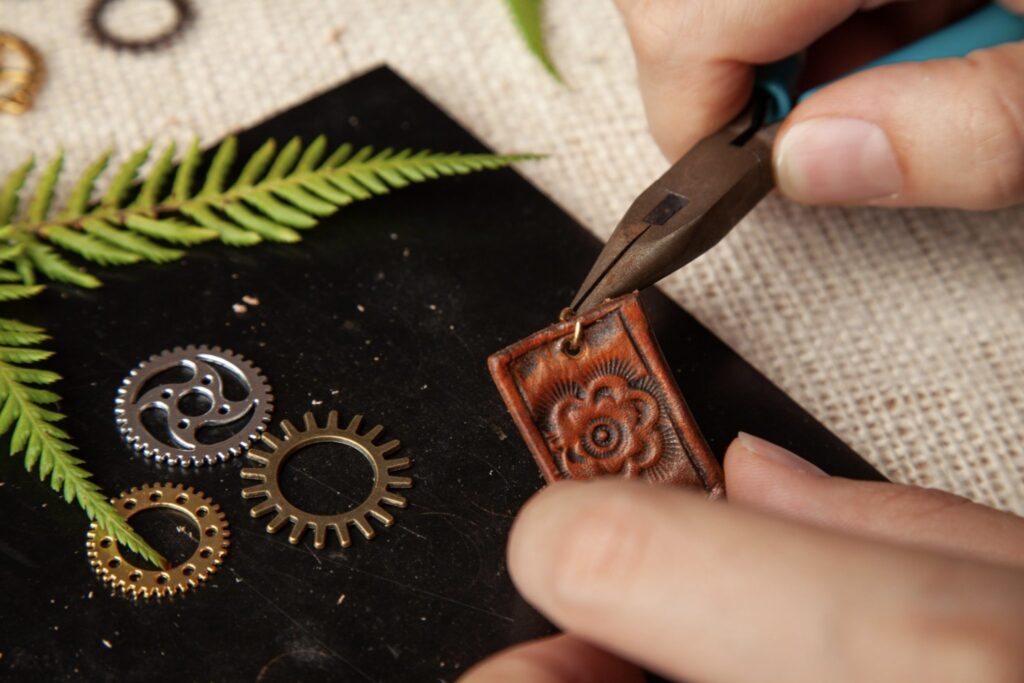
Step 16: Add your closures using chain nose pliers – you can use any clasp of your liking but we believe that you can never go wrong with a good old lobster clasp and jump ring combo!
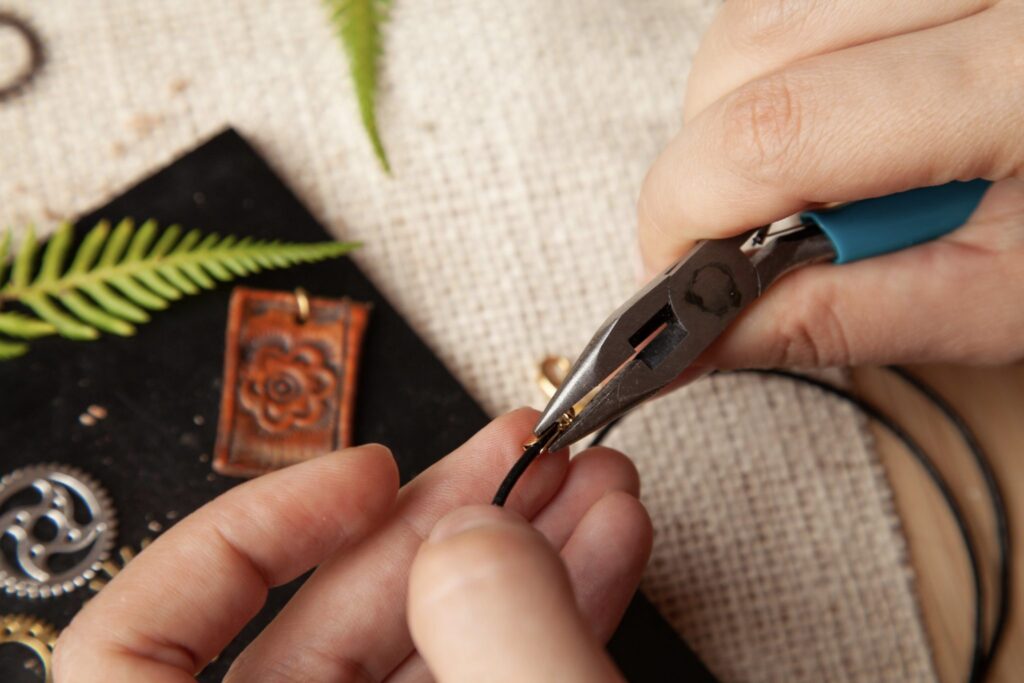
Step 17: Pocket all the compliments you’ll be getting daily on your new necklace!
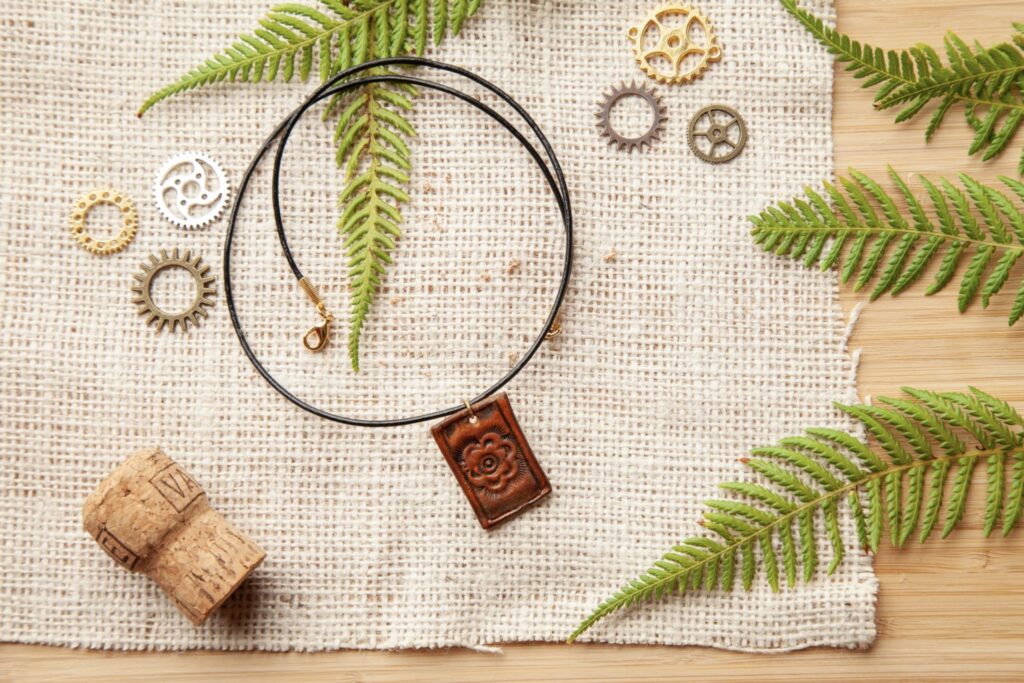
Show off your Leather Flower Pendant! Did you do a different shape or turn it into a pair of cute earrings? We can’t wait to see – please share with us on social media!
Need some Happy Mail? Join our mailing list to stay updated on the latest Dragonfly Designs news, latest offerings, and special promotions!
© 2023 Dragonfly Designs. All Rights Reserved | Proud to be a Woman-Owned Small Business
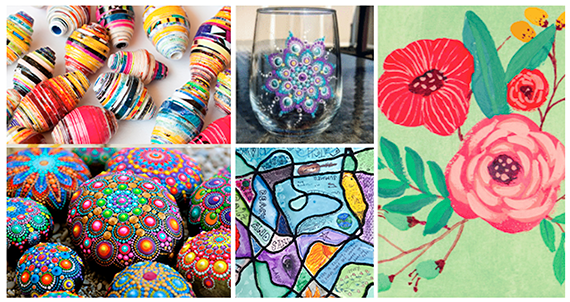
Join our mailing list today and also receive a FREE, beautifully illustrated coloring e-book. Time to unlease your creativity!